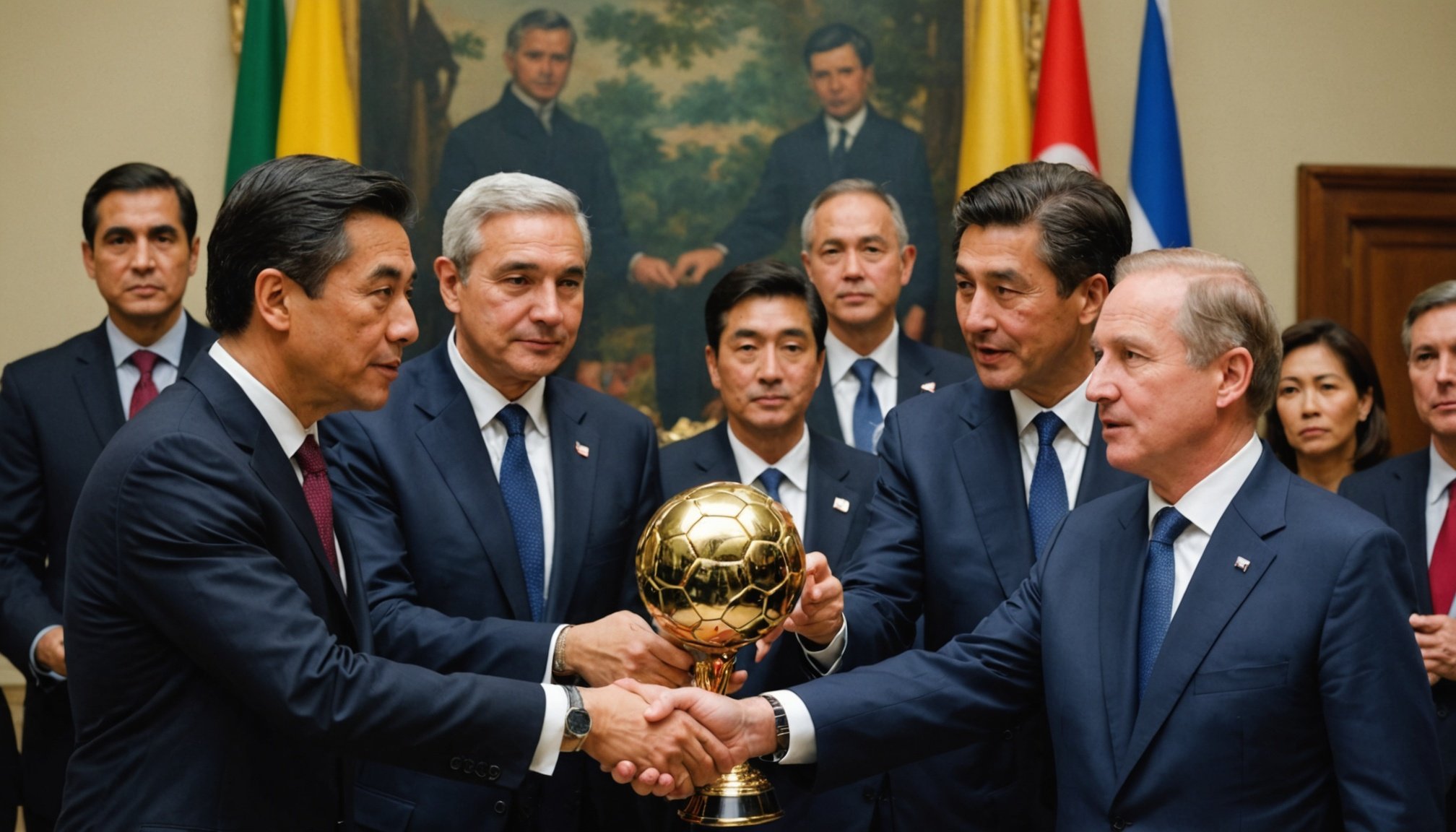In an era where global politics often seems fraught with tension, the concept of sports diplomacy emerges as a powerful tool for fostering international relations. This phenomenon refers to the use of sporting events and participation in athletic activities as a means to promote dialogue, understanding, and cooperation among nations. As athletes represent their countries on the world stage, they also carry with them the potential to bridge cultural divides and facilitate political discussions. In this article, we will explore how sports diplomacy not only enhances diplomatic relations but also serves as a significant aspect of cultural exchange between countries.
The Historical Significance of Sports in Diplomacy
From the ancient Olympic Games to modern-day international events, the intersection of sports and diplomacy has a rich history. These events have often served as platforms for nations to showcase their values and promote their interests. For instance, the Olympic Games, held every four years, encourage countries to come together in a spirit of friendly competition, transcending political barriers.
Also to read : How can athletes use journaling to track training progress and emotional wellbeing?
Historically, sports have played a critical role in times of conflict and peace. The famous ‘ping-pong diplomacy’ of the early 1970s is a prime example where the simple act of playing table tennis facilitated a thaw in diplomatic relations between the United States and China. This event not only allowed for meaningful exchanges between leaders but also fostered a sense of goodwill among the people of both nations.
In the context of cultural exchange, sports provide an opportunity for countries to share their traditions and values. For example, when nations participate in international competitions, they introduce their unique sporting practices, such as sumo wrestling from Japan or cricket from England. These exchanges allow athletes and fans alike to appreciate the diverse cultural backgrounds that shape the world of sports.
In the same genre : Top Strategies to Stay Hydrated and Beat Dehydration at Outdoor Track Events
Moreover, sporting events can catalyze broader political discussions. The FIFA World Cup, for instance, draws global attention to host nations, often leading to improvements in diplomatic relations as various countries come together to celebrate a shared passion for football. Thus, the historical significance of sports in diplomacy underscores its potential to influence international relations positively.
Sports Diplomacy and Global Events
Global events such as the Olympics and World Cup are more than just competitions; they are international showcases of unity and camaraderie. These events have the unique ability to bring together nations that may otherwise have strained diplomatic relations. By participating in these sporting events, countries can express their commitment to peace and collaboration.
Take the example of the 1980 and 1984 Olympic boycotts, which reflected the political tensions of the Cold War. In contrast, the 1992 Olympics held in Barcelona saw the inclusion of South Africa after the end of apartheid, symbolizing a significant step towards global acceptance and unity. The event not only highlighted the political transformation within South Africa but also showcased the power of sports to enact change on a global scale.
Additionally, sports diplomacy often involves collaboration on initiatives that promote health, education, and social development. Various international organizations leverage sports as a medium to address cultural tensions and promote understanding among different nations. For example, the United Nations has recognized sports as a valuable tool in achieving its Sustainable Development Goals, emphasizing sports’ role in promoting peace and development.
Furthermore, athletes themselves often become informal diplomats. When they engage with fans from different backgrounds, they embody the spirit of international cooperation and understanding. This interaction fosters a sense of shared identity and reinforces the notion that despite political disagreements, there exists a universal love for sports that transcends borders.
The Role of Athletes as Cultural Ambassadors
Athletes frequently act as cultural ambassadors for their nations, utilizing their platforms to promote goodwill and understanding. Their visibility and influence can inspire dialogue on important issues, making them pivotal figures in sports diplomacy. When athletes engage in community service, charity events, or public speaking, they enhance their countries’ images abroad and foster connections with diverse audiences.
For instance, when world-renowned athletes such as Serena Williams or Lionel Messi engage in humanitarian efforts, they not only raise awareness but also create a bridge between diverse cultural backgrounds. Their actions can inspire fans and fellow people to take part in initiatives that promote tolerance and understanding.
Moreover, the participation of athletes in international events is often symbolic. When a team walks into the stadium, carrying its flag, it represents not just the sport but the entire nation’s cultural heritage and values. This aspect of sports serves as a reminder of national pride and identity while simultaneously fostering respect among other nations.
Furthermore, athletes can influence diplomatic relations through their public stances on social issues. By speaking out on matters such as racism or inequality, they challenge stereotypes and promote a more inclusive narrative. This advocacy often resonates globally, allowing for cultural exchange and dialogue that can lead to improved political relations.
In essence, athletes are not merely competitors; they are pivotal figures in the realm of sports diplomacy, embodying the spirit of unity and collaboration through their actions and platforms.
Challenges and Future Directions in Sports Diplomacy
While the benefits of sports diplomacy are evident, it is not without its challenges. Political tensions can often overshadow sporting events, making it difficult to achieve the desired outcomes of cooperation and goodwill. For instance, events like the Olympics have faced boycotts and protests that stem from political disagreements, demonstrating how fragile these diplomatic relations can be.
Moreover, the commercialization of sports can dilute the original intentions behind sports diplomacy. As countries invest heavily in promoting their national image during international events, the focus may shift from fostering genuine connections to competing for global attention and prestige. This shift may undermine the potential for cultural exchange and mutual understanding that sports can facilitate.
However, the future of sports diplomacy remains promising. With the rise of digital platforms, athletes and countries can engage with global audiences in unprecedented ways. Social media allows for real-time interactions that can promote cultural understanding and international dialogue beyond the confines of sporting events.
Additionally, as the world becomes increasingly interconnected, the role of sports in diplomacy is likely to expand. Initiatives that focus on youth engagement through sports programs can provide a foundation for future diplomatic relations. By fostering connections among young athletes, nations can cultivate a sense of camaraderie that transcends political boundaries.
In conclusion, while challenges exist, embracing the potential of sports diplomacy to foster international relations and cultural exchange is essential. By leveraging the power of sports, countries can work towards building a more peaceful and collaborative global community.
The intersection of sports and diplomacy provides a unique lens through which we can understand international relations and cultural exchange. As we have seen, sports diplomacy serves not only as a platform for competition but also as a means to foster dialogue and build connections among nations.
Athletes, as the face of their countries, have the power to influence perceptions and promote goodwill. They embody the spirit of unity that is integral to the mission of sports diplomacy. Despite the challenges that may arise, the future of this practice appears promising. Through innovative approaches and a commitment to fostering genuine connections, countries can harness the transformative power of sports to enhance diplomatic relations on a global scale.
In summary, embracing sports diplomacy is an opportunity for nations to move beyond political differences, creating a platform for understanding and shared experiences. As we continue to witness the impact of sports on international relations, the potential for promoting peace and collaboration among the people of the world remains an exciting prospect.











